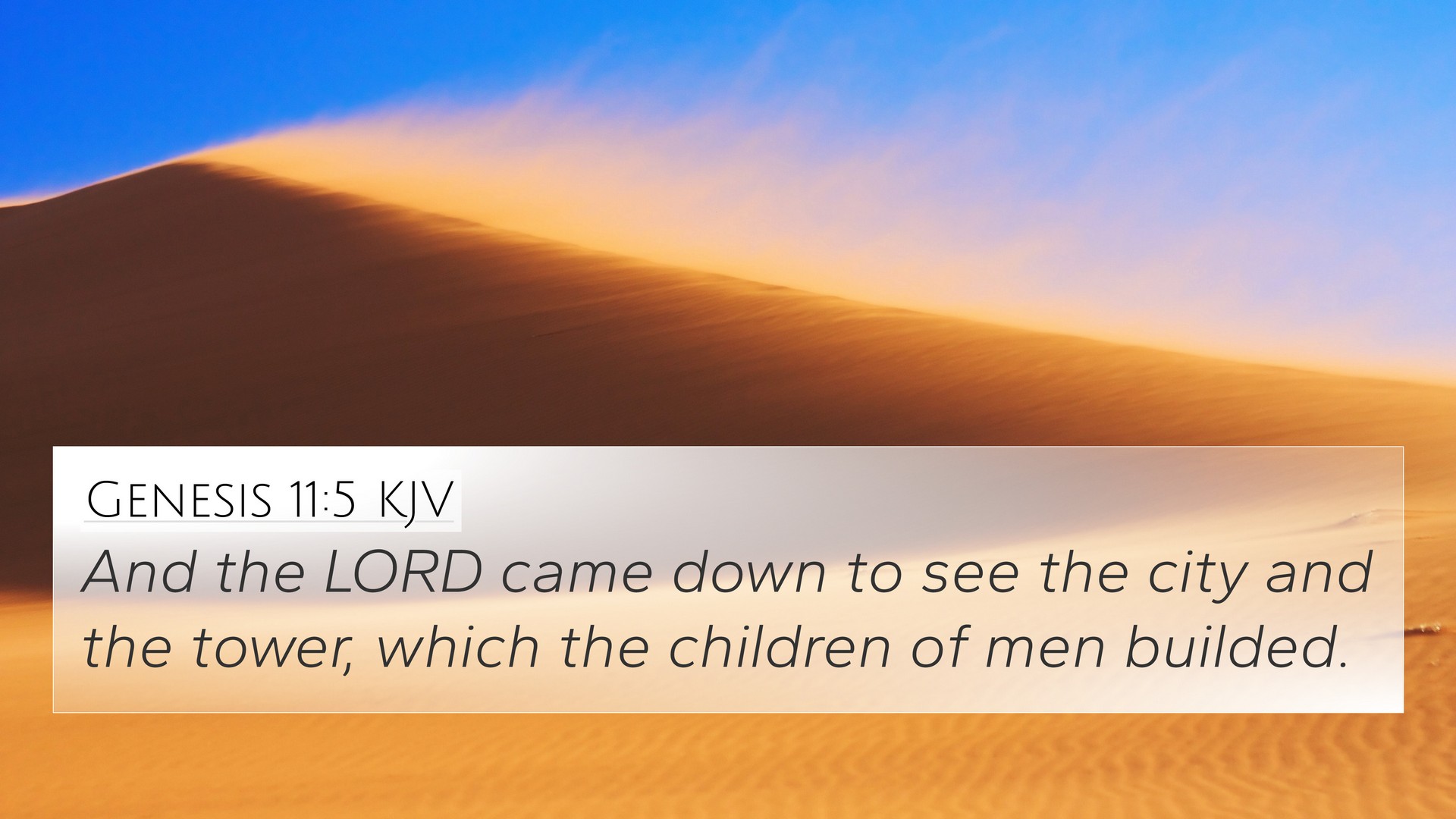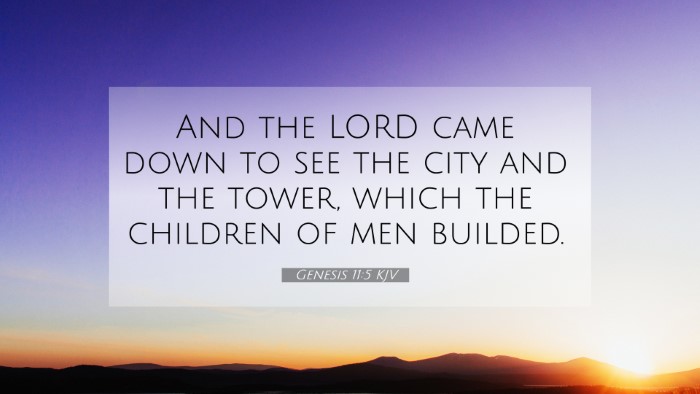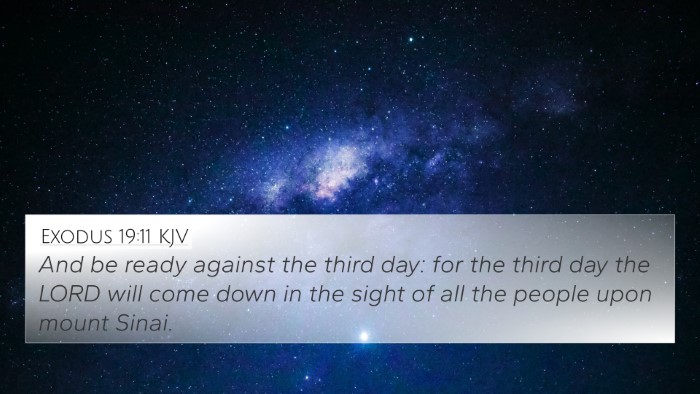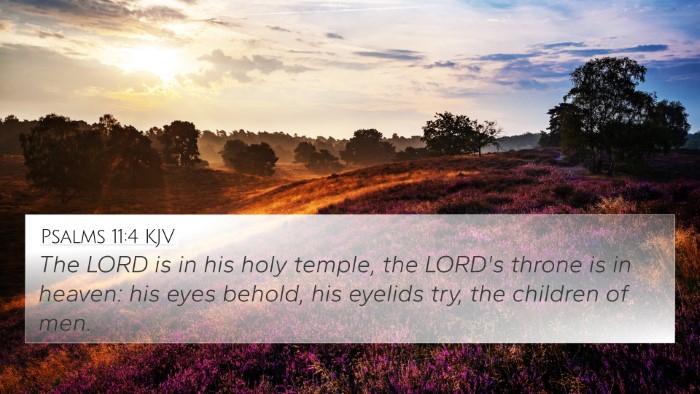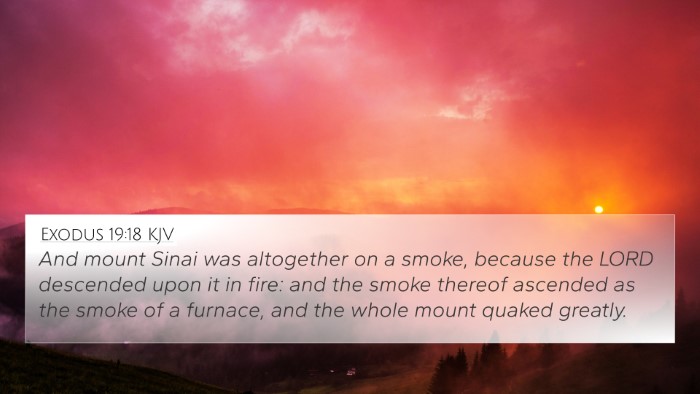Understanding Genesis 11:5
Genesis 11:5 states, "But the LORD came down to see the city and the tower which the sons of men had built." This verse marks a pivotal moment in the narrative of the Tower of Babel, where humanity's ambition to reach the heavens is met with divine scrutiny.
Divine Observation
- Matthew Henry Commentary: Henry emphasizes the anthropological aspect of God coming down to investigate human actions. It shows God's active involvement in the world and highlights that no enterprise, even one as grand as the tower, escapes His notice.
- Albert Barnes Notes: Barnes remarks that the phrase "came down" suggests a condescension, indicating that God's perspective is higher than human endeavors. This serves to illustrate the futility of human pride in trying to reach God.
- Adam Clarke's Commentary: Clarke suggests that this process of God observing serves as both a warning and demonstration of God's omnipotence. The act of coming down is viewed more as a divine investigation than as a physical movement.
Human Ambition vs. Divine Will
This narrative illustrates the tension between human ambition and divine sovereignty. The builders of the Tower of Babel aimed to make a name for themselves, reflecting humanity's desire for self-glorification, contrasted with God's purpose and plans, which remain sovereign and unaffected by human actions.
Bible Verse Cross-References
Genesis 11:5 can be cross-referenced with several other scriptures to deepen understanding:
- Genesis 1:26-28: The creation of humanity and the divine intention for mankind to fill the earth contrasts with their desire to build a single city.
- Genesis 6:5-7: God's observation of human wickedness leading to judgment showcases a similar theme of divine watchfulness over human actions.
- Exodus 3:8: This passage where God observes and descends to deliver His people reflects His continual engagement with human history.
- Psalms 2:4: God's laughter at the nations' conspiracies underscores the futility of human opposition to divine will.
- Isaiah 14:13-15: A similar prideful ambition is shown in Lucifer's desire to ascend to heaven, paralleling the builders' ambitions.
- Luke 1:51: The powerful are brought low, echoing the theme of divine intervention against human pride.
- 1 Corinthians 3:19: Here it states that the wisdom of this world is foolishness with God, reminding us of the limitations of human understanding.
- Revelation 21:2: The new Jerusalem as a city from God contrasts with the earthly city built by human pride.
- Romans 12:3: An exhortation against pride and inflated self-views complements the warnings highlighted in Genesis 11.
- Proverbs 16:18: Pride precedes destruction, reinforcing the theme of Genesis where pride leads to confounding.
Thematic Bible Verse Connections
The story encapsulated in Genesis 11:5 serves to illustrate deeper themes present throughout the Bible:
- Divine Sovereignty: God's authority over human endeavors is a consistent thread in scripture.
- Pride and Humility: The need for humility before God, as seen in the narratives of many Biblical figures.
- Unity and Division: The desire for human unity (through a single language and city) meets divine intervention that ultimately leads to division.
- Human Limitations: The folly of attempting to reach heaven reinforces the limitations of human capability.
Inter-Biblical Dialogue
This verse invites a richer understanding through inter-Biblical connections. The Tower of Babel narrative has themes echoed in the New Testament, particularly with references to human pride, rebellion against God, and the necessity of through faith to achieve unity with God rather than through human effort.
Conclusion
In summary, Genesis 11:5 serves as not just a historical account but a theological reflection on the nature of humanity and its relationship to God. This verse, through its implications of divine scrutiny and human pride, encourages readers to seek humility and recognize the ultimate sovereignty of God over all human endeavors.
Tools for Bible Cross-Referencing
For those looking to explore the connections between Bible verses, consider utilizing the following tools:
- Bible concordances for locating verses.
- Bible cross-reference guides to understand thematic links.
- Software and apps specifically designed for cross-referencing Bible study.
